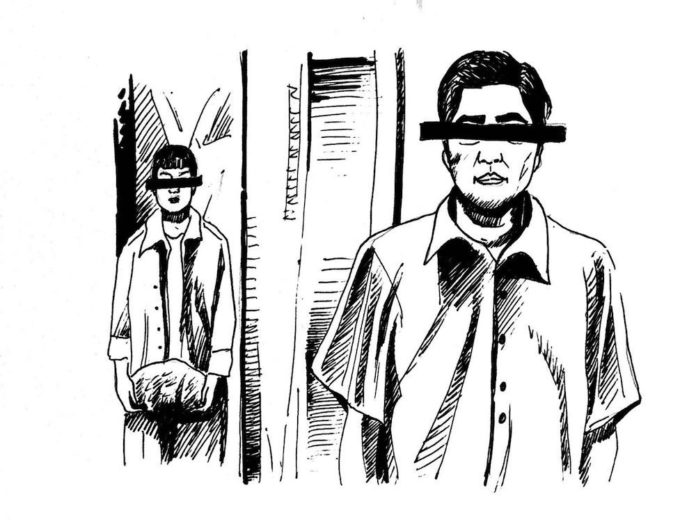South Korean director Bong Joon-ho’s newest film “Parasite” became the first movie since 2013 to win this year’s Cannes Film Festival top prize May 21 with a unanimous vote. The Palme d’Or winner has now made its way into American theaters. As it enters the U.S. market, I struggle to imagine that this impressive picture is finished winning awards. Before my viewing, I dug around the internet for snippets of context and ran into the same comment repeatedly: go into the experience with as little information as possible. It feels rare to have that option when one considers the hype of our big domestic films, but “Parasite’s” foreign-film status is its main commercial hurdle in the U.S.
After plugging my eyes and ears to the chatter, I slipped into the theater and was rewarded in ways I did not predict. The movie might elicit cliches of class consciousness, but this film is truly unique in its surgical construction of tension, humor, sweetness and the unpredictable way those effects fill the screen. Joon-ho plays with his moral messages throughout the film until they are flipped over and inverted inside out. The Kim family’s cunning deception serves survival, then greed. The Park family are naive prisoners of their own insular wealth. A luxurious architectural masterpiece mediates the push-pull relationship between them.
“Parasite” moves at a pace with precision and focus that eludes any genre. In its first act, the interactions between both families represent a kind of scorecard for a game the Parks don’t even know they’re playing. When Ki-woo Kim’s friend Min stops by for a surprise visit, he gifts the family an oval-shaped stone said to bring material wealth to whoever possesses it. Ki-woo marvels at this explanation and replies, “It’s so metaphorical!” This turns into his catchphrase, and he employs it throughout the film without foreseeing its boomerang effect.
Eventually, karma touches each character with an amoral realism that sharpens the devastating results of cause and effect. It is amoral because it is concerned with balance, not ethics. Even when the Kim family suffers, it is at the hands of forces and circumstances that exist beyond their well-executed but manipulative plan. Their skills turn into adaptations as they take on the roles Mr. and Mrs. Park pay them to play. Ki-Jung is a Photoshop wizard who forges documents to become Jessica, the American-educated art teacher. Ki-taek uses his prior experience as a driver to impress Mr. Park and create a sense of professionalism that masks his sallow skin and detectable scent. As the Kim family’s charade spins out of control, they’re crushed by the weight of their lies.
Entropy finds its way into the Parks’ house because they simply do not respect the capacity for secret disobedience in the individuals they employ. When Mr. Park discovers planted underwear in his car, he blames their driver and asks his wife “Don’t you pay him well?” Although the man they accuse is innocent, it reveals just how much they’re blinded by money in its relation to workplace morale. They do not see how thinly applied, albeit genuine, politeness does not make up for their ostentatious demands. The domestic workers who prop up their lifestyle are dispensable. Once Ki-woo discovers how easily they are replaced, he rearranges his family relations to suit the Parks’ employment needs. “Parasite” borrows from the great 1989 independent film “Chameleon Street”, as its protagonists use their working-class street smarts to shape-shift into limited beings that match expectations from the rich. Both films explore the way impersonation melts into identity with unintended consequences. The plan runs smoothly until long-serving maid Moon-gwang and her husband Geun-se expose the house’s secret bunker.
The Park siblings live in a cloistered environment at the hands of their mother. She is the kind of parent who doesn’t let their children play outside without supervision. Her over-involvement provides her with purpose but leaves her susceptible to the Kims’ hustle.
“Parasite” is a work of nimble filmmaking where every detail carries significance, if not provocation. Joon-ho’s tight web of character dynamics are necessary to build up and then maintain the film’s dramatic shift in tone. There’s not a wasted scene, and this means space is scarce — but from its blanket theme of class, we get a skewed perspective that only deals in extremes. The Kims struggle to make ends meet, while the Parks can’t spend enough money. This is obvious through their respective neighborhoods, but what is missing is the middle. It doesn’t sacrifice the thrill or structure of the story, but I’m hesitant to go all-in on a reading of “Parasite” that inflates that element of Joon-ho’s social commentary. Class warfare is embedded into every angle of “Parasite,” but its complexity does not stop there.film
![]()































